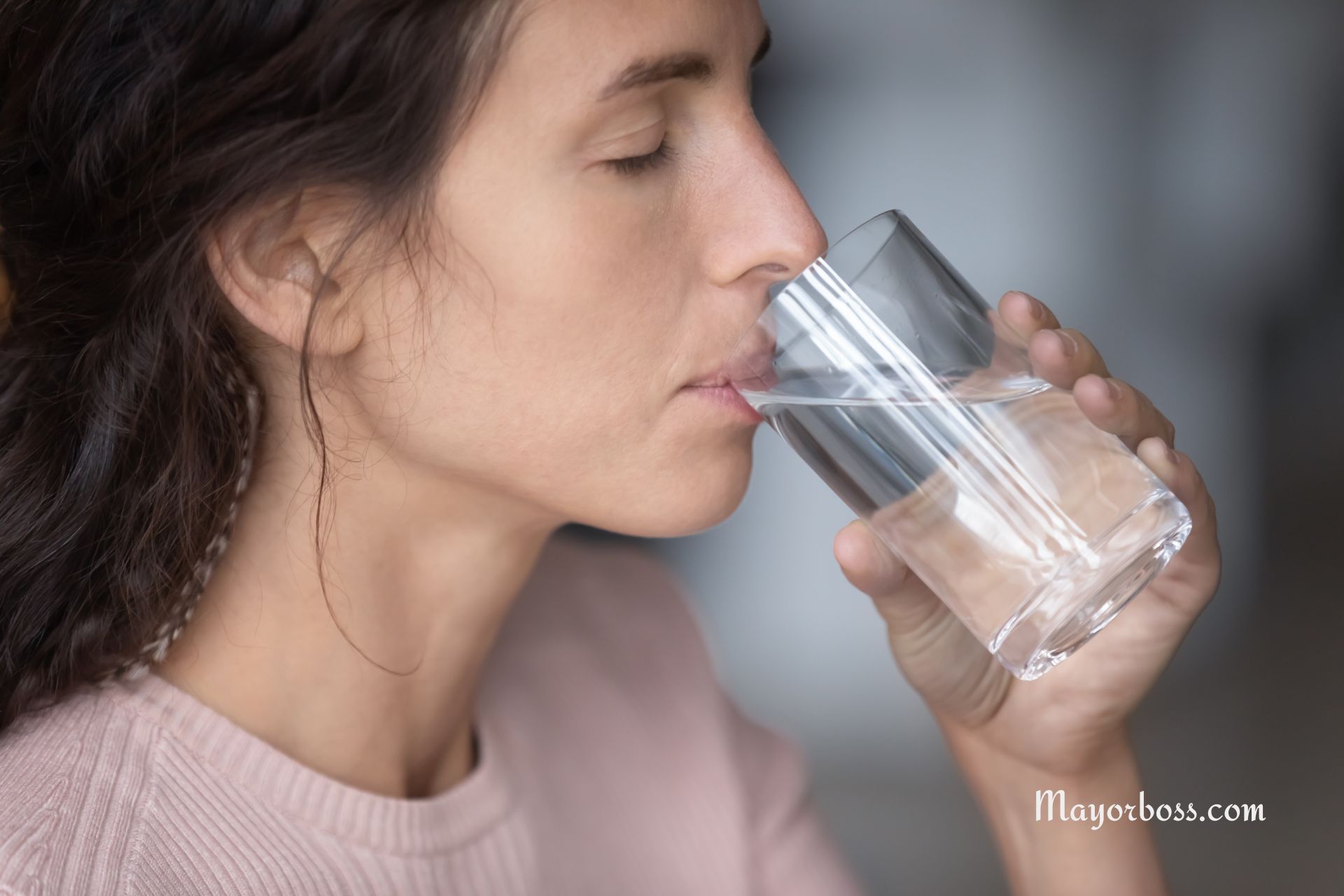Stop Drinking Water at This Time to Get a Good Night’s Sleep
Many people want good sleep, but they don’t realize that drinking too much water late at night can hurt sleep quality. Water is very important for our health, but drinking a large amount close to bedtime may make you use the bathroom several times during the night. This interrupts your sleep cycle and can leave you tired the next day. To keep hydration balanced and still sleep well, you should plan when to stop drinking water in the evening.

When to Stop Drinking Water
Most experts advise stopping water intake about one or two hours before bedtime. For example, if you plan to sleep at 10 p.m., you might stop drinking around 8 or 9 p.m. This gives your body time to process the fluids and lowers the chances of nighttime bathroom trips. If you feel thirsty right before bed, a small sip is okay, but avoid drinking a large amount.
Factors That Influence Evening Hydration
Physical Activity
If you work out in the evening, you may drink extra water to replace sweat. In that case, spread out your water intake so you aren’t gulping large amounts right before bedtime. If possible, finish your workout a few hours before going to bed to better manage your fluid intake.
Medication
Some medications, like diuretics, make you produce more urine, leading to more nighttime bathroom visits. Talk to your healthcare provider about the best time to take these medications. Sometimes, a small change in schedule can reduce nighttime waking without affecting how well your medicine works.
Medical Conditions
Health conditions such as diabetes or heart failure can affect your fluid needs. If you have one of these conditions, speak with your doctor for a plan that fits your situation. They can help you stay hydrated without ruining your sleep.
Tips to Optimize Nighttime Hydration
Track Fluid Intake
Keep track of how much water you drink each day. Aim for a steady intake instead of waiting until the evening to catch up. If you still wake up often at night, consider cutting back even earlier in the evening.
Balance Electrolytes
Electrolytes help your body use fluids correctly. If your electrolyte levels are off, you might feel thirstier. If you sweat a lot or exercise hard, you might try an electrolyte drink earlier in the day. Still, be careful about having it too close to bedtime.
Adjust Your Bedroom Environment
If your bedroom is too warm or dry, you might feel thirstier at night. Keeping your room cool and fresh can help reduce that nighttime thirst that causes you to drink right before bed.
What to Expect if You Cut Back
When you limit your nighttime water intake, you may sleep better and wake up less to use the bathroom. You might also feel more refreshed in the morning. If you usually have trouble going back to sleep after waking, you might find it easier to stay asleep. You could even notice fewer headaches in the morning since disrupted sleep can be linked to headaches.
Avoid Dehydration
Cutting back on water in the evening doesn’t mean you should drink less water overall. During the day, keep drinking enough to support healthy blood pressure, digestion, and brain function. Dehydration can make you dizzy or less alert, so make sure you meet your fluid needs while you’re awake.
Takeaway
In most situations, stopping water intake one or two hours before bed can help you rest better. This approach keeps you hydrated throughout the day without making you get up at night.
